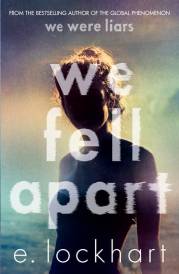Kate Novack The Gospel According To André Interview
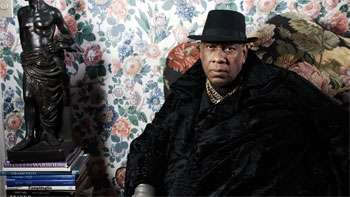
A Film by Kate Novack
Cast: André Leon Talley, Sean Combs, Divine
Director: Kate Novack
Genre: Documentary
Rated: PG
Running Time: 94 minutes
Synopsis: André Leon Talley has been a fixture in the world of fashion for so long that it's difficult to imagine a time when he wasn't defining the boundaries of great style. Kate Novack's intimate portrait, The Gospel According to André takes viewers on an emotional journey from André's roots growing up in the segregated Jim Crow South to become one of the most influential tastemakers and fashion curators of our times.
Novack's film draws fascinating, heretofore unexplored connections, between the elegance of André's beloved grandmother and the Black Church of his youth and his later iconic, barrier-breaking work at publications like Women's Wear Daily, W and Vogue. Weaving together a wealth of archival footage from the most glamorous moments in fashion history with André's poignant reflections on his life and career, The Gospel According to André is a cinematic monument to one of the most unique figures of 20th Century American culture.
Produced by the team who brought viewers The First Monday in May and Page One: Inside The New York Times and featuring commentary from fashion luminaries including Anna Winter, Marc Jacobs and Tom Ford, The Gospel According to André is an indispensable addition to the growing canon of fashion documentary.
The Gospel According To André
Release Date: July 12th, 2018
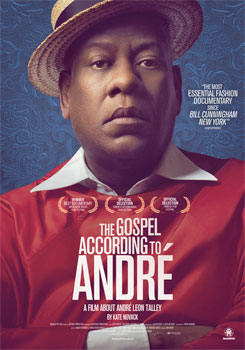 Interview with Kate Novack
Interview with Kate Novack
Question: What first drew you to André Leon Talley and the idea of making a film about him?
Kate Novack: Ultimately, it was my belief that André's life story deserved to be documented. But my grandfather was in the dress business. He manufactured clothing for designers, and I remember visiting his factory in Lowell, Massachusetts. So fashion was kind of in my DNA. I'd seen Andre in so many fashion documentaries"I think that my last count was fourteen. And he wasn't just in them. He had these scene-stealing roles. But they always had the feel of a performance.
My producer and husband, Andrew Rossi, directed The First Monday in May, which André was in. I went to some of the Q&As for the film that Andrew and André did together. Afterwards, I said to Andrew, 'Why has there not been a film about this man?"
Andre talks about a hymn that he always loved in church, that still brings him to tears, called 'Precious Memories." I listened to that song, and it was so moving. It's about the way that memory can act as a sustaining force. That was really the entry point and the vision, and that song now plays a prominent role in the film.
Question: How did you explain that vision to him?
Kate Novack: I really was very sincere in approaching him. I told him that I wanted to penetrate the persona that exists in the public. I think that he has a way of being that is so effusive and volcanic because he's so passionate, but I wanted to see what was behind that. I think he was excited that I wanted to go back to Durham, that I wanted to understand where he came from. Whether he knew that the experience would bring him to tears, I don't know, but I think he knew I wasn't interested in doing something superficial.
The movie now opens with shots taken inside of his house, and his house is really his sanctuary. One of the things that almost everyone told us in interviews was how he doesn't invite anyone to his house. The first time we went up there to film, we were only allowed on the porch. Eventually he did let us into his house, which was a great visual metaphor because it really is the physical manifestation of his private side.
Question: There have obviously been numerous fashion documentaries and you mentioned that there have been a number of fashion documentaries that André has been in. How did you approach this film and try and carve out a little space so that it has its own identity?
Kate Novack: I wanted the movie to always operate on two levels, both within the genre of -fashion documentary' but also as a piece of American history, because I think that André is an important figure in American cultural history. He is one of the very first African American men to have a position of visible importance within the fashion industry. We have a long history of African American performers in front of the camera, but many fewer behind the camera shaping the images we see. I love fashion documentaries, and so many of them are so moving. I think that fashion can be really moving, and I think that André's love of fashion is very, very pure. As a boy, he fell in love with fashion, so I think that I always wanted it to be a movie that could allow viewers to experience, say, the beauty of what Yves Saint Laurent was doing on the runway in Paris in the 1970s, but also the place where André's love for fashion came from which was the Black Church and the women in his family.
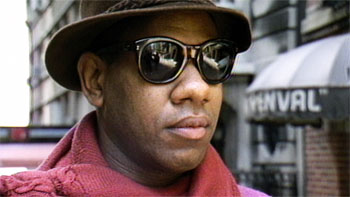 Question: There's something about the optics of that, of just seeing a non-white person in these spaces, that's obviously had a ton of impact on the culture at large.
Question: There's something about the optics of that, of just seeing a non-white person in these spaces, that's obviously had a ton of impact on the culture at large.
Kate Novack: One of the things that I remember most clearly about those Q&As for The First Monday in May happened at the Paris Theater in New York City. A young African American man stood up and he said to André, 'I moved to New York to study fashion. My parents don't believe that what I do is real, and you are the only reason that I know that this is possible, and that I can do this." Andre had done a conversation with the painter Kehinde Wiley in which they talked about this idea of radical presence, in which just being present represents a form of radicalism. I think this is so true for Andre. Tamron Hall doesn't work in fashion, but we see her in the film being fitted by André and she explains what it meant for her as a young woman of color growing up in Texas to just see him.
Question: It helps that you had this wealth of archival material to choose from. It's really illuminating to re-see fashion history with André front and center.
Kate Novack: I did know that I wanted to, as much as possible, take people into the different eras in which he had worked. I wanted people to be able to see what it was like. We dug very deep, and then let the material guide us. There's a scene that comes very early in the film that's in the designer Azzedine Alaia's apartment, and in it André is a kind of cub reporter"he's young, and reporting in Paris as a young man, and we see him speaking French. It's a glimpse into what he did and how long he's been doing it for. One of my favorite moments in the film is actually in that scene. A small group is gathered in Alaia's small apartment in Paris and as the model turns, we hear the floor creak. It's so indicative of how fashion was once guided by a very quiet, intimate observation that I think still informs Andre's way of looking at it.
Question: Did the archival help in making a film about somebody who is a critic, a tastemaker…a kind of curator? These aren't necessarily the most cinematic activities.
Kate Novack: It's funny, because, when we made Page One, that was also a challenge. How do you cover reporters just….reporting? Today, André doesn't go into Vogue every day and work, so we couldn't rely on just going in and filming him there. It was important to me that people see some of his work, some of his spreads. You learn about him through the work. There's a spread he did in Vanity Fair called Scarlett N' the Hood, in which he reversed the roles of the blacks and the whites, and I think that work is informed in many ways by Andre's experience in the Black Church. André's story spans many different eras, and is a story about visual culture in many ways. I wanted viewers to be able to experience things like how the film stock looked at the moment, and how it changed over time.
Question: Has André seen the film?
Kate Novack: Yes. I think he was really, really nervous, because he did not have any idea what it was going to be. It ended up being really emotional for him. He was crying. He was so moved by some of the fashion in the film. He always refers to the Golden Era of Fashion, which, for him, is the 1970s, and a lot of those people aren't around anymore. I think it was emotional to go back, and to reconnect to his childhood with his grandmother and process her loss. When we talked about Durham early on, one of the first things he talked about was walking through the woods to the baptismal pool, and then the second thing was how he and his grandmother were just like Truman Capote's short story Christmas Memory. It's so interesting to me that those are the first things that came to his mind. I think we captured certain vulnerabilities in the film that he really doesn't usually show. I think often about the scene where he is in the archive and he becomes very emotional when he talks about the racism he's had to internalize over the years. We went there not only to look at all of his work, but all of the Vogues he's been looking at since he was a 12-year-old boy. Clearly it stirred something in him. That was a real moment where we penetrated his persona. Something about looking at those images opened some kind of floodgate in him.
Question: He seems similarly vulnerable when you're with him on Election Day, and the morning after.
Kate Novack: I was going through my own despair, and frankly it has only gotten worse since then.
It didn't emerge until a little later into filming that the election was going to be crucial to the film's structure. I don't feel lucky at the outcome, but I feel lucky that I was able to film with André during a time in American history that was so relevant to his personal story. Hopefully people will understand something about André after seeing how he grew up in the Jim Crow South, became a success in the fashion world, saw the first African American President, and then witnessed the election of Trump. In focusing on the 2016 election and its aftermath, I felt that at least I was able to capture André's experience in processing it, and, hopefully, by connecting it to his personal story, it can bring more meaning and perhaps understanding to a shift in our country that I think that everyone, in all corners, is still having so much difficulty processing.
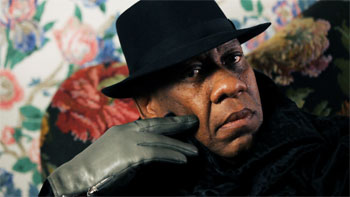 Question: This is the first film you've directed solo. How did you make that decision?
Question: This is the first film you've directed solo. How did you make that decision?
Kate Novack: There were always different ideas that Andrew and I, in our production company, had discussed as possible movies that I would direct. But I really was inspired by André's story, and it just felt like the right story at the right moment. It felt like a moment where the story of this African American man"because, in many ways, I view the movie as being as much about one African American man's experience in America as it is about fashion"was important and urgent. There's a line from Eboni at the beginning of the movie about how André is a legend in mainstream culture, and he's also a tall Black man in America from the American South and that there would always be great tension there. That really became an organizing principle in the film.
Question: Was it a leap for you to take the reins yourself?
The Gospel According To André
Release Date: July 12th, 2018
MORE




